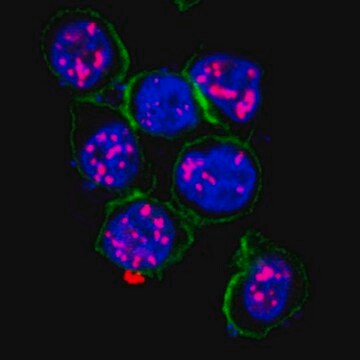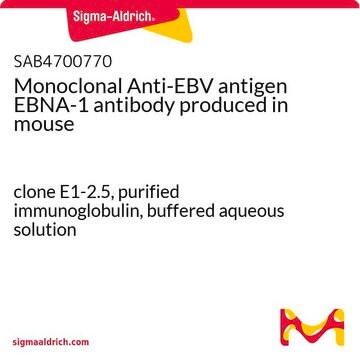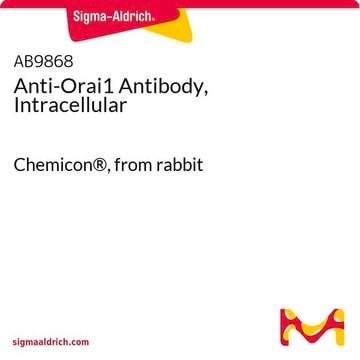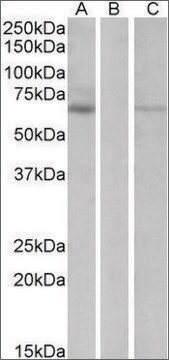MAB8535
Anti-Herpes Virus 6 Antibody, 101kDa protein, clone C3108-103
clone C3108-103, Chemicon®, from mouse
Synonym(s):
HHV-6B
About This Item
Recommended Products
biological source
mouse
Quality Level
antibody form
purified immunoglobulin
antibody product type
primary antibodies
clone
C3108-103, monoclonal
species reactivity
human
manufacturer/tradename
Chemicon®
technique(s)
immunofluorescence: suitable
immunohistochemistry: suitable
western blot: suitable
isotype
IgG
shipped in
wet ice
Specificity
SPECIES REACTIVITIES:
Shows weak reactivity to cells infected with human CMV in immunofluorescent assays. Does not cross-react with HHV-6 A variant.
Immunogen
Application
Immunohistochemistry, IH/IH(P)
Dilute with buffer pH 7.5-8.0 to desired working volume.
For extensive dilution, protein containing or other stabilizing medium should be used.
Final working dilutions must be determined by end user.
Infectious Diseases
Infectious Diseases - Viral
Physical form
Storage and Stability
Other Notes
Legal Information
Disclaimer
Not finding the right product?
Try our Product Selector Tool.
Storage Class Code
10 - Combustible liquids
WGK
WGK 2
Flash Point(F)
Not applicable
Flash Point(C)
Not applicable
Certificates of Analysis (COA)
Search for Certificates of Analysis (COA) by entering the products Lot/Batch Number. Lot and Batch Numbers can be found on a product’s label following the words ‘Lot’ or ‘Batch’.
Already Own This Product?
Find documentation for the products that you have recently purchased in the Document Library.
Our team of scientists has experience in all areas of research including Life Science, Material Science, Chemical Synthesis, Chromatography, Analytical and many others.
Contact Technical Service







